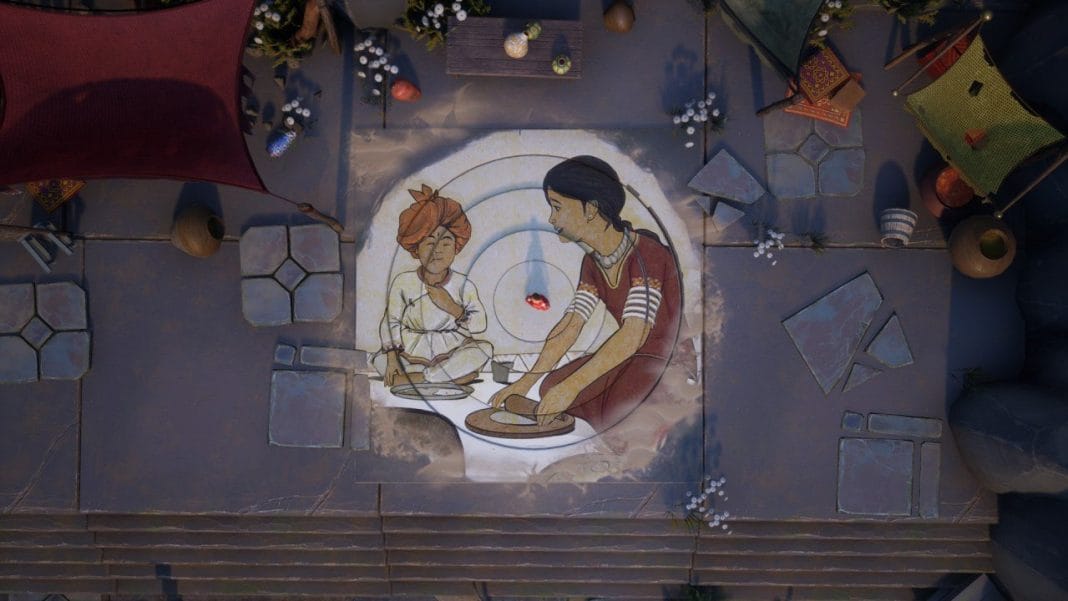While Fortnite continues to be in the spotlight, Epic Games isn’t just betting on the popularity of its battle royale shooter to stay relevant.The company has been actively courting the developer community with Unreal Engine. Aside from showing off Unreal Engine 5 running on the PS5, promising a $1 million waiver for developers making games using Unreal, and making Epic Online Services – a set of online and social tools that have been battle-tested on Fortnite available to developers for free, it has set its sights on India.
“The main thing we heard from developers using Unreal before entering the Indian market was it was very difficult to find talent,” says Quentin Staes-Polet, GM India and SEA for Epic Games. “There’s going to be a huge focus on educating developers who want to transition to Unreal and partnering a lot of education teams and institutions and enabling them with courseware, trainers, and consulting on curriculum to create that base of developers. There’s a huge need for us to educate a lot more people in India and we’re going after it aggressively.”
While an admirable goal, we wonder if it would be enough. With that in mind, we spoke to multiple Indian game development studios to find out.
“Unreal Engine 5 looks good and is heading towards expected areas of improvement,” says Ahad Oomerbhoy, Managing Director at Singular Scheme – a studio that released Miner’s Mettle, a PC strategy game on Steam that runs on Unreal Engine 4.
“Anything that allows us to be creative and work quickly is something I’m excited for,” he says. “I was more interested in the other announcements they made simultaneously, about the Epic Online Services launch, and increasing the royalty threshold to $1 million. We do plan on staying with Unreal Engine, though it’s a bit hard to say whether the next game is Unreal Engine 4 or Unreal Engine 5.”
Others such as Nodding Heads Games, the studio behind Raji: An Ancient Epic are a lot more exuberant.
“My mouth just hit the floor with everything that’s possible with the engine,” says Ian Maude, Founder and Artist at Nodding Heads. “It’s just insane what you can do with it.”
“It’s something that I know our tech artists and programmer will definitely want,” adds Shruti Ghosh, Founder and Artist at Nodding Heads, explaining that Epic has built in features that make development a whole lot easier. “There is no light baking for a project. Just like art, like they said in their demo art can be just art and you don’t have to think about so much limitations. And so yes, we will look into it.“
While Nodding Heads’ Raji is for PC and console and Singular Scheme’s Miner’s Mettle is PC only, what about mobile? A large chunk of Indian game developers are focussed on Android and iOS. Take Mumbai-based Roosh Interactive for example. The studio consists of game developer veterans responsible for some of the early mobile hits from the country such as Spider-Man, BioShock, and Cricket Fever as well as more recent titles like Zombie Bloxx. It’s in the mobile space that Epic’s competitor Unity has the advantage.
“We have been a Unity developer since our inception almost seven years ago,” says Srinivasan Veeraraghavan, Co-Founder at Roosh Interactive. “So our studio is oiled well with Unity over the years. Although we would definitely like to try out some prototypes since Epic’s announcement of Unreal 5 which looks sick.”
Unreal Engine’s budget Android smartphone problem is Unity’s gain
And while Veeraraghavan’s interest is piqued with Unreal Engine 5, he’s not blind to its pain points for day to day development.
“We need our games to run on the lowest end devices as most users in India have a sub-Rs. 5,000 phone,” he says. “Unity does well to support these handsets.”
Although Staes-Polet stated that smartphone specifications are getting better with regular frequency, it also poses a concern if it would be worth expending time and effort for budget devices.
“Phone performance increases every six months,” he says. “So we want to go and drag our engine down to meet hardware that’s going up and will join us anyway? That’s the dilemma. We just want a real good game experience for every player.”
However the company isn’t adverse to the smartphone space. Recently the company announced that Fortnite would run at 90fps on OnePlus 8 series smartphones. Previously it tied up with Samsung and Huawei for exclusive Fortnite skins on their flagship devices.
Good news: Epic says #Fortnite can run at 90fps on smartphones.
Bad news: it’s limited to the #OnePlus8series for now.
Details: pic.twitter.com/giZG4v9l1f
— rishi alwani (@RishiAlwani) May 26, 2020
With its efforts mainly focussed towards PC and console development, it’ll be interesting to see if Epic budges from its high-end mobile push.
Epic Online Services could democratise cross-play if developers are convinced
And then there’s Epic Online Services that aren’t as platform dependent as Unreal Engine.
Staes-Polet claims Epic Online Services are a bigger deal than Unreal Engine 5 on the PS5 as it allows developers to unify player accounts and leaderboards across platform
“A lot of companies – smaller or big have not managed to do cross-platform play, don’t have access to a big social graph,” he says. “It takes a lot of effort to manage lobbies, player matching, leaderboards across four or five different platforms. For a lot of game companies that means they had to pick some platforms and let go of a whole set of players because they could not manage and they didn’t have the infrastructure. Building it from scratch is really painful. Now it’s going to be a very simple SDK and you’ll be able to take your game and specifically the place where it’ll be most beneficial will be multiplayer and MMO because a lot of those functions are about that such as matching players.”
For Epic, it’s an extension of the company’s cross-play endeavours with Fortnite, allowing more developers to partake in what Staes-Polet believes is a movement that would bring down the walled garden approach most platforms have, putting players first.
“We’re doing cross-play across all platforms and that’s what we’re making available to other developers,” he says. “I think when more developers make that move which was only possible for large companies in the past, and leverage that and make platform holders agree to it. I think that walled garden approach platforms have is eroding. They’re realising it doesn’t make a lot of sense for players. They want to play the same game and want to go from their PlayStation to their phone and transition between the other, they don’t want to have two accounts, two leaderboards, and all those things. I think there’s an ineluctable movement towards that and at the same time we’re more than happy to facilitate that and to make that easy for a lot more developers than it was before.”
As commendable as it sounds, Indian developers are a little more tentative when it comes to embracing Epic Online Services. One of Roosh’s first games, Nitro Rush used OpenStreetMaps when it released back in 2015 to combine geolocation with asynchronous multiplayer in a racing game. We asked Veeraraghavan if Epic Online Services was available at the time, would it have made making Nitro Rush easier and more importantly, would it impact the developer’s upcoming games that have multiplayer features?
“It would depend if it supported what we wanted to do at the time,” he says. “It’s definitely worth considering for our newer projects. Online services are getting complex and there are lots of differentiators now arriving in this space.”
Similarly, Singular Scheme is weighing the pros and cons of shifting over to it for Miner’s Mettle and evaluating what challenges it could face in doing so.
“If it’s significantly better than what we currently have and easy to implement, we may make the switch,” says Oomerbhoy. “Another benefit if we do use it is that it allows us to be on other storefronts down the road if we wish. I haven’t looked at it yet to know if there are challenges; we’re in Early Access and we need to provide new content regularly so we may not spend our time on making the switch. If our next game is a multiplayer game, we’re likely to just use Epic Online Services.”
Unreal Engine royalty waivers may jumpstart PC game development in India
Despite this, it seems that Epic’s focus on PC and console colours developers perceptions of Epic’s other endeavours such as waiving the first $1 million in game revenues for games running on Unreal Engine.
“It’s a good thing that Unreal is incentivising the developers with the $1 million waiver,” says Veeraraghavan. “Unreal is very popular with PC developers in India, take Raji for example. So yes definitely its going to more help the PC developers in India for sure.”
This is a sentiment Singular Scheme’s Oomerbhoy echoes while explaining that it could also pose a challenge for those looking to take advantage of it.
“The $1 million waiver probably appeals quite a lot to people,” he says. “But it will be difficult to make an impact right away as most here have Unity experience. Making the shift [to Unreal from Unity] is a bit like going from iOS to Android (or vice versa). It’s a bit jarring for a while and there usually needs to be a good reason to instigate that change. I think it’ll require persistent effort but will pay off for Epic in the long run.”
That said, the waiver is just one of Epic’s ways to incentivise developers. Others include its grants. Established by Epic Games in 2015 for “promising developers working with Unreal Engine”, awards range from $5,000 to $50,000 with no restrictions or obligations to Epic Games. For studios like Nodding Heads, the grant ended up being a crucial lifeline.
“I remember the morning when I opened my email on my phone,” Ghosh says. “We were having a really bad time, getting rejections from different publishers. Every time you have such good conversation and they just come back with an email just saying that ‘no, we can’t publish you for so and so reason’. It was such a bad period for me that day and to see that message on phone, I was literally in tears that we’ve got a grant and there was some ray of hope.”
“We were literally down to our last rupees when that came in and with such immaculate timing,” says Maude. “And also, this is for the guys and girls at Epic that do the grants, Raji wouldn’t be where it is today if it wasn’t for that. If it wasn’t for that grant in 2018 it was make or break for us.”
Suffice to say Nodding Heads isn’t planning on moving away from Unreal anytime soon. Although the studio appears to be the exception rather than the rule. Most Indian game developers make their games on mobile where Unity dominates and depend on ad revenue to sustain. It’s not something Epic plans to venture into according to Staes-Polet.
“The company is very religious almost with user data,” he explains. “No way in our business model do we share user data for advertising or other purposes with third-parties. That is something that is principal at Epic. We’re not going into sharing user data. We won’t do advertising-based games and we don’t want to be involved in that process. We’re not doing an advertising platform but we’re giving access to our players and their connections through Epic Online Services coming soon there.”
All of this makes for an interesting scenario for Indian developers. Unity has an iron grip on the mobile front while Epic is looking to make in-roads on other platforms. This could perhaps kickstart a larger number of game studios to look beyond the usual glut of casual mobile games and hopefully prevent pivots to gambling apps (or ‘real money’ as the industry loves to call it) that’s becoming all too common. Throw in a larger number of Indian games reaching international standards on platforms like PC, and a greater variety of content beyond the usual cricket, Bollywood, and card games and the real winners in all of this may eventually be consumers.




